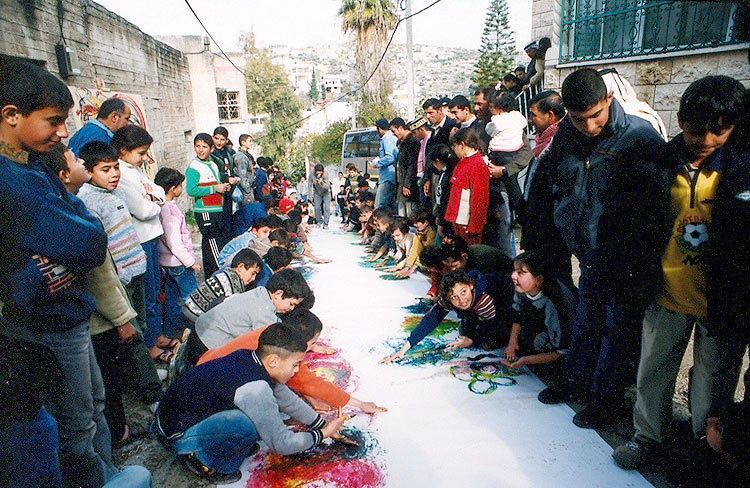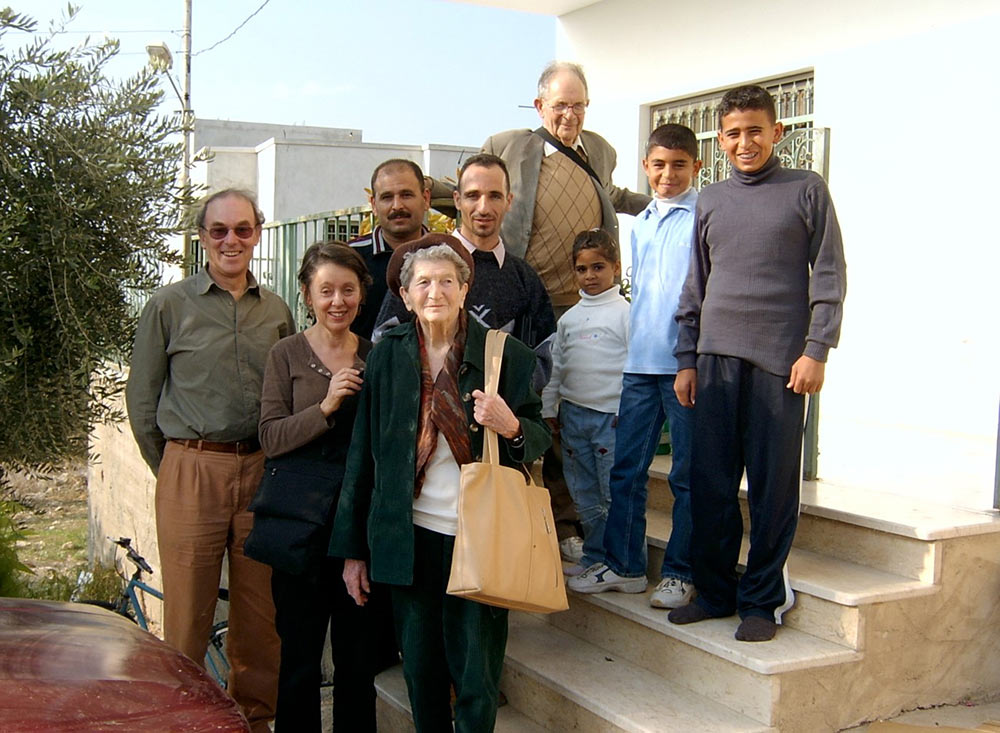Swipe to read
Ken describes the lack of political discussion in his family home as a child.
Read Transcript
“So that was my university, a lot of politics, a lot of fun and a lot of physics.
What were your parents like, were they interested in politics?
My father was not, apart from his stories of activities pre-war, he was never politically active. There was never any doubt about how you voted as a Jew. You voted Labour. That was it. You know. You couldn’t conceive of anything else. In that community in East London. We took the Daily Mirror, which at that time was a good left paper. It was a decent paper at that time. But that was the extent of it really. We never talked politics in the house. My wonderful uncle Arthur was a communist GP in Brick Lane. Who I used to see quite often because they would have, we’d go to the house in Brick Lane when we lived in London. The adults would play cards, rummy or whatever, and the kids would just sort of knock about and not make too much noise. But my uncle Arthur, he would always talk to me. The only one really. I remember what it was now. My father’s hairdressing salon, you know how people would bring magazines in. So there were always copies of the Reader’s Digest there … I would read this stuff as a nine/ten-year-old. And I would talk to my uncle Arthur about, you know, Korea and America and Russia and all these things. And he would say, no it’s all wrong. And he would argue and argue and he actually took the time to discuss these things with me. I realise now how wonderful that was. Nothing really at home from my parents.
What about Zionism? Was that something that was discussed?
No, my earliest recollection of Israel was a blue box. I started cheder in 1948 at the age of five. The year of the foundation of the state of Israel. And I remember the blue box and I remember being told that we had to collect money for trees to plant in this desert land. I don’t think at that time they ever used the phrase, a country with no people for a people with no country. Or a land with no people for a people with no land. But that was the implication. That it was the barren, empty landscape. And the only way to make it work was to plant trees. And you could plant trees by putting money in this blue box. So that was it really. No real involvement. I never went to Habonim. No real involvement in any Jewish youth clubs.”
Ken explains his first Zionist feelings.
Read Transcript
“Pretty much as soon as Yvonne and I married in 1966, Ruth made Aliyah and went to live in Israel. It’s normally the other way around. It’s normally the kids to leave the parents not the parents who leave the kids … It was something she was powerfully devoted to doing. Because of what happened to her family and all the other families … and it was really only about that time that my sort of understanding of Israel and the importance of Israel to Jews became sort of apparent. Up till then my politics was Vietnam, lots of American friends in Cambridge, and demonstrations, British politics here. Israel was not anything that was at all in my sphere of interest …(1.34.40) Israel 1966 … Yvonne’s mum … she went maybe early 1967, I can’t remember the exact date, but she of course arrived in time for the Six Day War. She was living in a tiny little flat in Tel Aviv. Yvonne and I visited her in August or September of ’67. So literally the war had just finished, and we were there a couple of months afterwards. It was a weird time; I think for everybody. There was a euphoria. We went to Jerusalem. We did a lot of the tourism stuff, I had never been to Israel before … you could not fail to be moved by the Western Wall, the Wailing Wall. Jews praying at the Wailing Wall. You also couldn’t fail to be moved by the feeling of survival. You know when that war broke out. Of course, we were in contact, telephone calls with Ruth and reading everything we could read about what was going on … I even volunteered … I think Ruth awakened within me a very strong Zionist feeling. You know what there has to be a home for Jews … I didn’t have any of the normal Zionist background … it was purely the strong, not just emotional, emotional and intellectual feeling that I got from Ruth and from Yvonne of course.”
Ken explains his reasoning behind establishing Windows for Peace UK in 2003.
Read Transcript
“So Aron joined this [Parents Circle] and was an active member of it for the rest of his life. I think that also was a strong influence on my views. I was hating the sort of Zionism that was being created in Israel. It wasn’t the sort of, I know that Zionism is not, I now understand that Zionism is not monolithic belief and right from the 19th century there has been different branches of Zionism … but the kind of right-wing Zionism that we now have and have had for quite a number of years is not the sort of Zionism that Aron wanted to see. Aron truly believed in treating others the way you would want to be treated. Which I believe, and he believed, is such a fundamental element of Jewish philosophy and culture and religion … When Aron was celebrating his 80th birthday, we went to Israel to celebrate … The day before his birthday and the party, he said, ‘I want to take you to a few little organisations. Because you might be interested.’ One of them was Rabbis for Human Rights, in Tel Aviv, another was Physicians for Human Rights and a third one which translates as ‘Windows Channels for Communication’. So, we spent about an hour at each of those and we know what Aron was trying to do. He was trying to get us keyed into one or more of these … The one that really took our fancy was the last one because it was working with kids, teenagers, slightly younger at that time, now just teenagers. And it seemed to us that actually if you were going to do anything it’s going to be a long process and the thing you really want to do is to try to get the kids understanding and talking with each other. And that’s what Windows was trying to do then and have been trying to do for quite a few years.”
Ken articulates his feeling towards Israel today.
Read Transcript
“I think a lot of British Jews don’t want to know really. I think there are a lot of British Jews who still think you have got to support Israel right or wrong. Increasingly I think there are Jews who, whilst they want to support Israel, are prepared to be very critical of the Israeli government and Israeli policy. And there are some Jews who believe that there should not be a state of Israel. Not just non-Zionist but anti-Zionists. Well, I think I know it’s a very small minority … in my own community. I’m a member of a reform shul, I have seen over the last few years, a much greater willingness to be critical of Israeli actions and of the government and to distinguish between a Jew and a Zionist and supporting Israeli policy. Which is where I am. I don’t believe that I as a Jew have to answer for that I think and the terrible things that Israel governments are doing now and have been doing. And I also have criticisms of Palestinians. I don’t believe that it’s just one-sided … People will say things like, you can’t be critical of Israel, they have enough enemies they don’t need more. You get some Jews who say you have no right to criticise Israel because you are not an Israeli and living there. You have others, and I would count myself among them, who would say, as a diaspora Jew, who does support Israel, who would describe themselves as a Zionist, the best way we can be a friend is to say, this is not the right way to do it.”
Ken describes his Jewish identity.
Read Transcript
“It means a great amount to me. But not religiously at all actually. I am a firm atheist. But that doesn’t stop me being Jewish. I believe that within the Jewish tradition. Within the Mishnah, the Talmud of real value for everybody that I would really encompass that. But ethically I love Judaism. Culturally, I wrap myself up in my tallit and I just feel comfortable. Ask me why and I can’t tell you. I can’t tell you. I just feel comfortable. And doing all the sort of Jewish things. Whether it’s going to a lovely little Jewish restaurant that had just opened in Cheadle called Lulus and eating chicken soup with kneidlach that bubba used to make (which is how it is described on the menu – wonderful). All that stuff, the seder. I like to have seder and I like it to be the traditional seder … If I can be part of a traditional seder something inside me makes me feel good … it means a lot, it means a lot. Even though I don’t believe in God in any sort of traditional way.”

